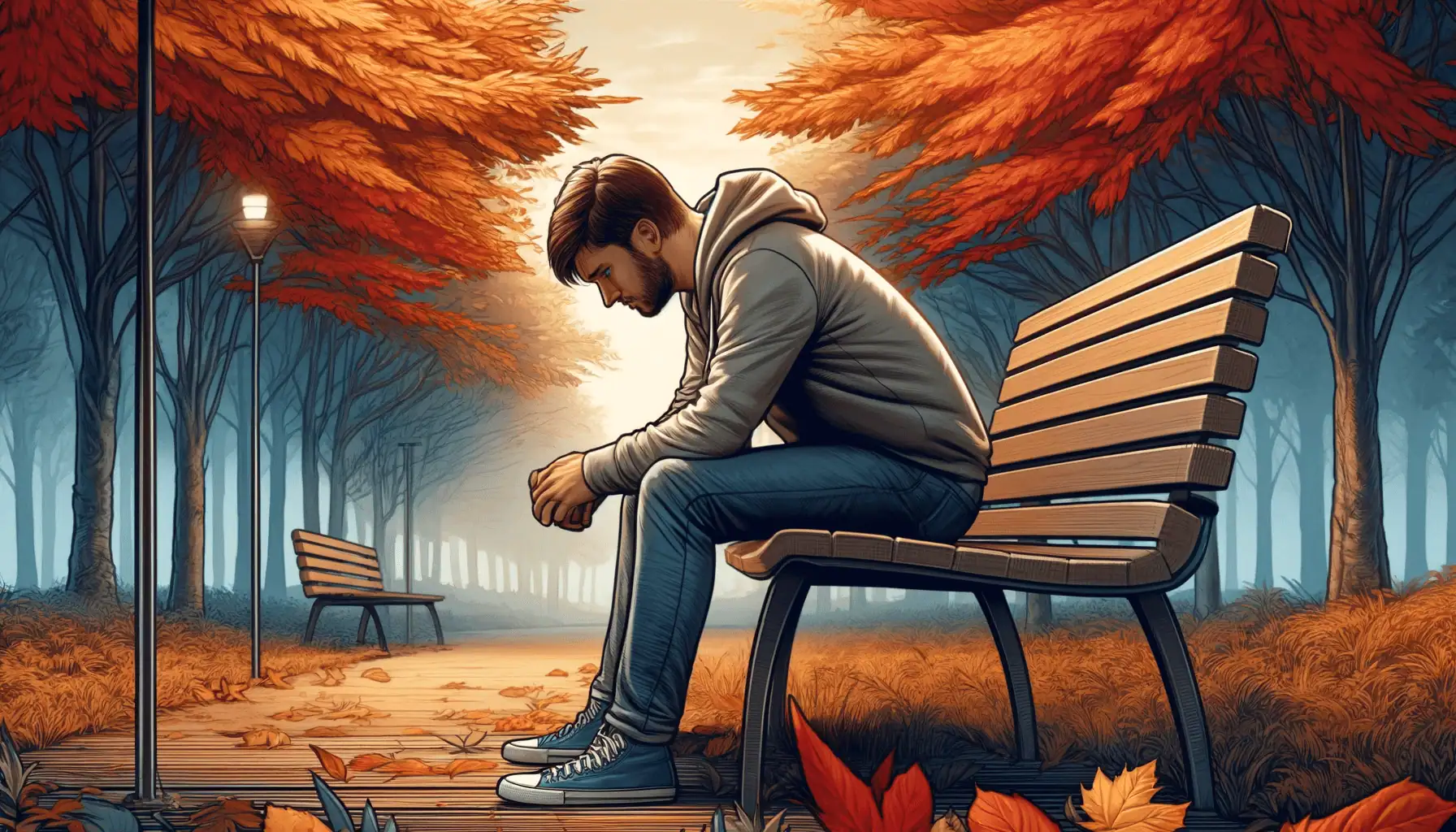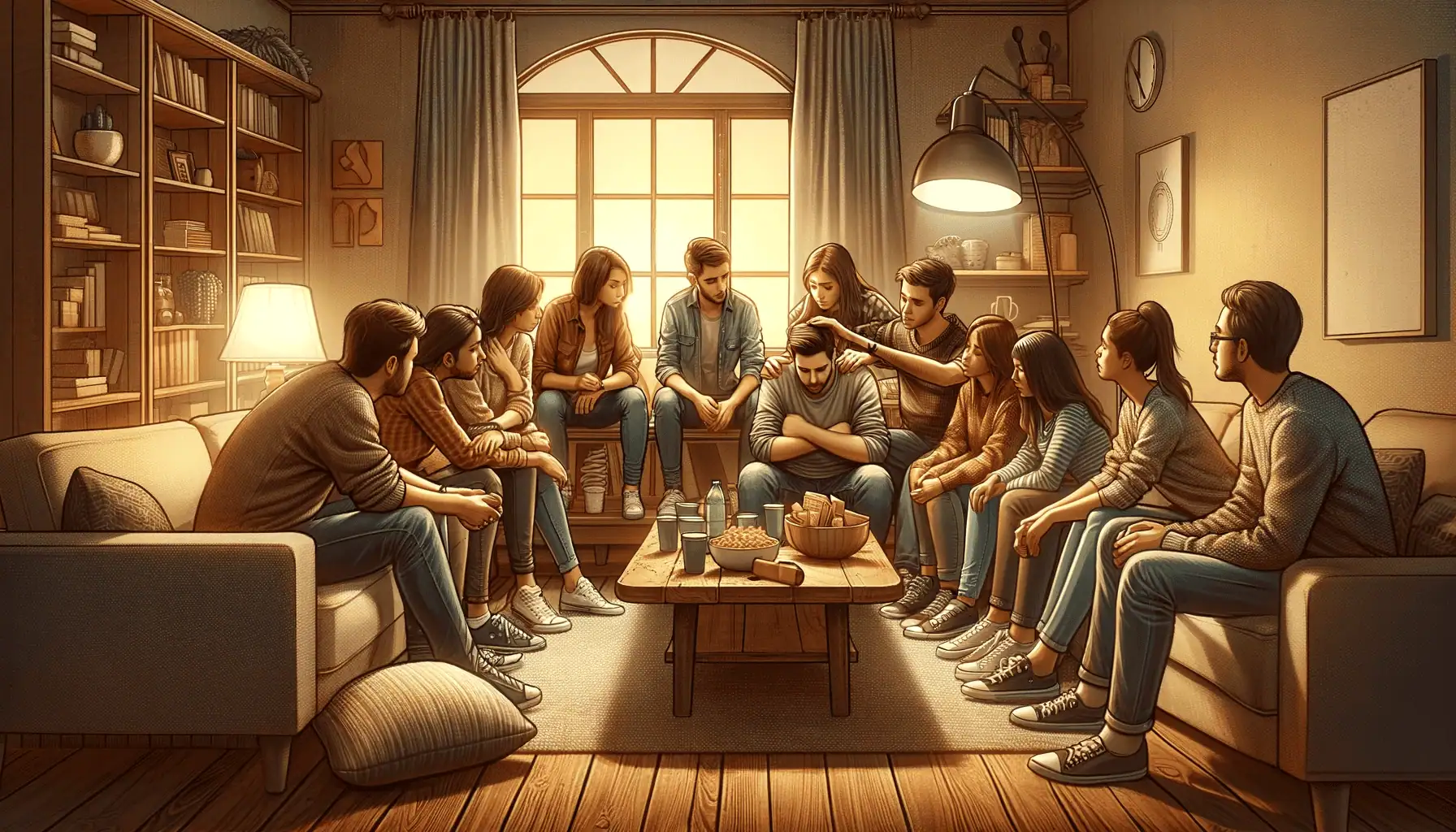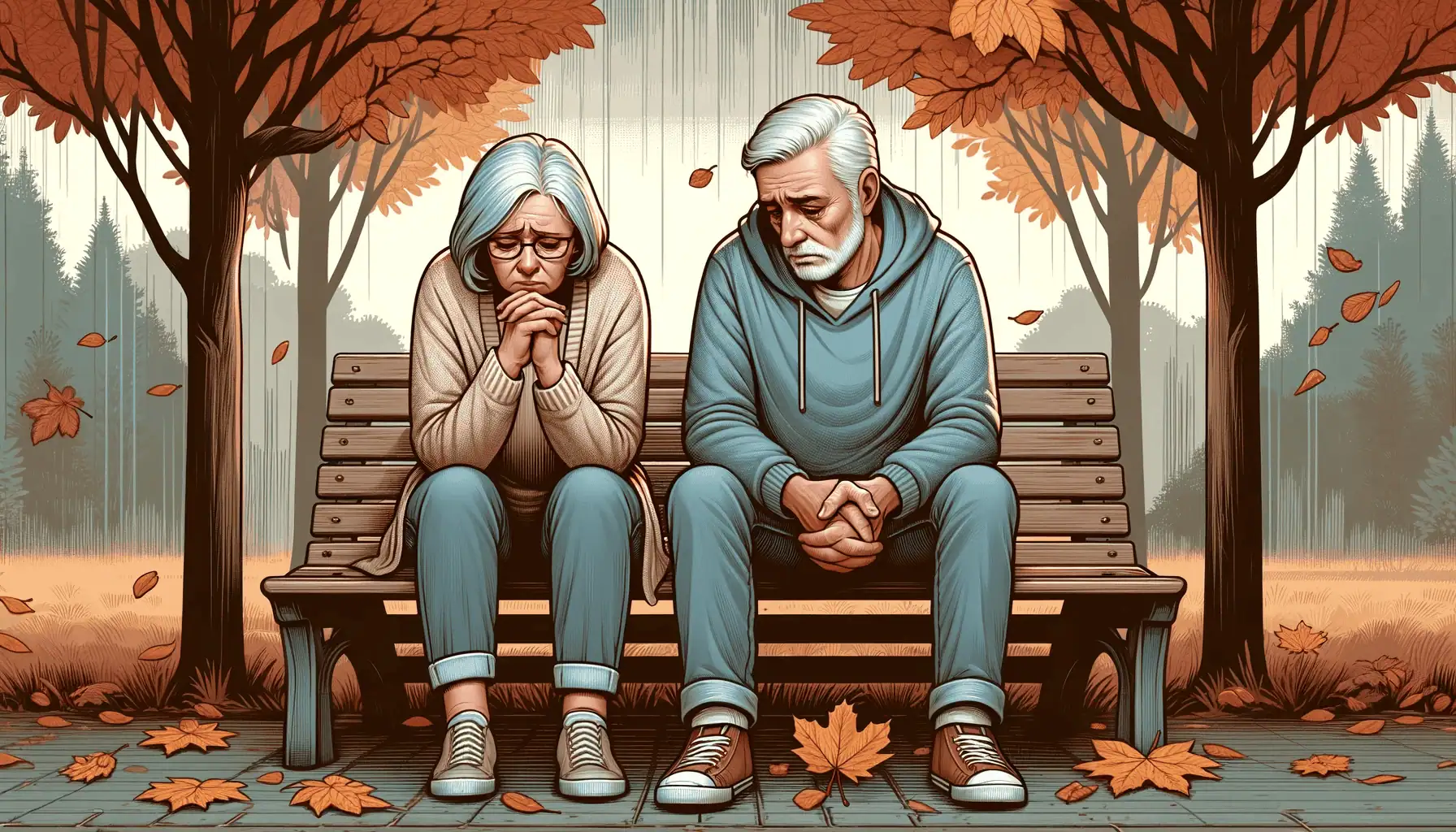
Healthy Ways to Move On After a Breakup
Breakups are tough, but there are healthy ways to move on. This article provides strategies to help you heal emotionally and physically. You’ll find advice on acknowledging your feelings, setting boundaries, and practicing self-care.
Key Takeaways
- Embrace and acknowledge all your emotions as part of the healing process. It’s okay to feel and express them without judgment.
- Establish healthy boundaries, such as a no-contact period, to give yourself the space needed for healing and self-care.
- Engage in new hobbies and interests to rediscover your individuality and build a new routine focusing on personal growth and happiness.
Introduction
Breakups can leave you feeling like a ship adrift in a stormy sea. Many people experience a range of distressing feelings after a breakup, which can range from:
- shock
- heartbreak
- sadness
- anger
- loneliness
- confusion
- guilt
- anxiety
- physical illness
As complex and intense as these emotions are, they’re normal and part of the healing process.
Establishing informal and formal support can provide much-needed help and resources for coping with the breakup. Remember, allowing yourself to feel all your emotions without judgment is crucial. This is your journey, and every step, every tear, every breath takes you closer to healing.

Acknowledge All the Emotions
When a relationship ends, an entire day can feel like an emotional roller coaster. One moment, you’re overwhelmed by love feelings, the next, you’re sunk in negative emotions. You may experience shock, powerlessness, and heartbreak, which are common under challenging situations. Some days, you may feel lost, even physically ill. It’s a tough pill to swallow, but it’s all part of the grieving process.
The key is to let yourself feel all the emotions, even the ones that hurt like a punch in the gut. Don’t judge yourself or try to suppress these feelings. They’re not wrong; they’re just signals that you’re human, capable of love and pain. It might not seem so now, but these intense feelings will subside with time and become less concerning.
Awareness of and accepting your emotions is not a sign of weakness but strength. It’s not about losing yourself in grief but finding your way through it. So cry if you need to, scream if it helps, and remember that it’s okay to feel. You don’t have to be okay all the time.
Take Off Your Rose-Colored Glasses
When we’re in love, we often see our partners through rose-colored glasses, focusing only on their good qualities. But what happens when the relationship ends? It’s a hard pill to swallow, but removing these glasses is crucial to moving on.
It’s easy to romanticize the past and overlook what went wrong. But clinging to a glorified memory of your ex can make it harder to cope with the breakup. It’s time to focus on their flaws, annoying habits, and things that hurt you. It might be a strenuous walk down memory lane, but it’s necessary.
This doesn’t mean you should forever dwell on the negative or forget the good times. Instead, it’s about creating a balanced and realistic view of the past. It might make you feel a little lost at first, but it will help you in the long run as you remember these experiences in the future.
Establish Healthy Boundaries
Establishing healthy boundaries after a breakup is crucial for healing. When a relationship ends, we often find ourselves in a strange limbo, unsure how to deal with our ex-partner. However, setting a ‘no-contact’ period can give both parties the time and space needed to heal.
This could mean not talking to your ex, not checking their social media, or even blocking them if necessary. It might feel harsh, but it’s an essential part of self-care. These boundaries allow you to focus on your healing and well-being without the constant reminder of what you’ve lost.
Setting boundaries also extends to your other relationships and social interactions. You might find it helpful to limit your time on social media or to avoid specific triggers that remind you of your past relationship. Remember, the goal is not to isolate yourself but to create a safe space for your healing.
Practice Self-Care Routines

Practicing self-care is like building a sanctuary within yourself. It’s about meeting your basic needs and providing a safe space for healing. In the aftermath of a breakup, it’s important to remember that you’re not just healing a broken heart but also taking care of your overall well-being.
There are many healthy ways to practice self-care. It could be as simple as getting enough sleep, staying hydrated, or maintaining a healthy diet. It could also involve activities that help you process your emotions, like journaling or listening to music. Remember, self-care is not an indulgence; it’s a necessity.
Don’t hesitate to try new routines or activities that make you feel good. Maybe it’s time to explore that yoga class you’ve always wanted to try or to take that solo trip you’ve been dreaming of. Whatever it is, make sure it brings you joy and peace.
Find New Hobbies and Interests

Finding new hobbies and interests can be a beacon of hope in your healing journey. This is your chance to explore new things, discover new passions, and create new memories. It’s about building a new routine separate from your past relationship, a routine that’s all about you.
You could learn to:
- play a musical instrument
- start your own podcast
- learn a new language
- write
- take up photography
- learn how to knit
Whatever it is, let it be something that excites you and makes you look forward to each day.
Remember, it’s not about filling the void left by your ex. It’s about embracing your individuality, exploring your potential, and creating a truly your life. So go ahead and dive into the world of new possibilities.
Surround Yourself With Supportive People

After a breakup, it’s easy to feel alone. But remember, you’re not. You have friends and family who care about you and are ready to lend a listening ear or a comforting hug. It’s crucial to surround yourself with these supportive people, reconnect with them, and let them be part of your healing journey.
Spend time with the people who lift you and understand your pain and journey. They could be a family member, friends, or even support groups. Their presence in your life will remind you that even though the relationship ended, love still exists, and it’s possible to stay friends.
Of course, it’s also important to respect your boundaries. If you’re not ready to share the details of your breakup, that’s okay. Your friends and family will understand and give you the space you need. Remember, this is your journey, and you’re in control.
Reflect and Learn From the Past
Reflection is a powerful tool in the healing process. It’s about taking a step back to objectively look at the past relationship, to identify what went well and what went wrong, and to learn from it. Reflecting on the past helps you understand your past relationship better, and it also helps you prepare for future relationships.
Think about who you were at the start of the relationship and who you are now. How have you changed? What have you learned? What would you do differently? This self-reflection can lead to valuable insights about yourself and your relationship patterns.
Remember, reflection is not about dwelling on the past or blaming yourself. It’s about learning from past experiences and using those lessons to grow and make better choices in the future. So take your time, explore your past, and use it as a compass for your future.

Seek Professional Help if Needed
Healing from a breakup can be challenging, and there’s no shame in seeking help if you’re struggling. It’s important to recognize when you need additional support, especially if you’re dealing with severe depression, having difficulty functioning or withdrawing from others.
If you find yourself stuck in the pain of the breakup, or if you’re feeling hopeless or worthless, it might be time to seek professional help. Therapists, counselors, and mental health professionals are equipped with the tools and techniques to help you develop positive thinking and coping strategies.
Remember, seeking professional help is not a sign of weakness. It’s a testament to your strength and your commitment to your healing. You don’t have to walk this journey alone. People are ready and willing to help you navigate this challenging time.
Summary
Breakups can be tough, but they also offer growth and self-discovery opportunities. The journey might be painful, but healing is possible with time, patience, and self-care. Remember to acknowledge your emotions, establish healthy boundaries, and seek support when needed. Don’t be afraid to discover new hobbies, spend time with supportive people, and learn from the past.
Remember, you’re not alone in this journey. A world of support is ready to help you navigate this challenging time. So take each day as it comes, one step at a time. You’re stronger than you think, and you have the power to heal and move on in a healthy way.
Frequently Asked Questions
How do I deal with the intense emotions after a breakup?
Remember to allow yourself to process your emotions without judgment. They are a normal part of the grieving process and will subside over time.
Is it okay to focus on the negative aspects of my ex-partner?
It’s okay to focus on your ex-partner’s negative aspects, as this can help reduce emotional attachment and provide a more balanced perspective of the relationship. So, reflecting on both the positive and negative aspects is important.
How can I establish healthy boundaries after a breakup?
Establishing healthy boundaries after a breakup is crucial for your well-being. Implement a ‘no-contact’ period with your ex, limit social media interactions, and set boundaries with others to protect your mental and emotional health.
How do I take care of myself after a breakup?
Make sure to prioritize self-care by getting enough sleep, maintaining a healthy diet, and doing activities you enjoy to help you transition through this challenging time and aid in your recovery. Remember, taking care of yourself is important for healing.
When should I seek professional help after a breakup?
If you’re experiencing severe depression, difficulty functioning, or withdrawal from others, it might be time to seek professional help. A mental health professional can provide coping strategies and improve your well-being. Don’t hesitate to reach out if you’re struggling.

